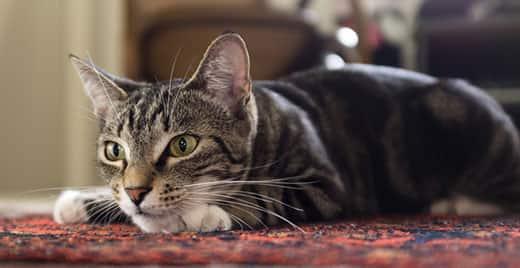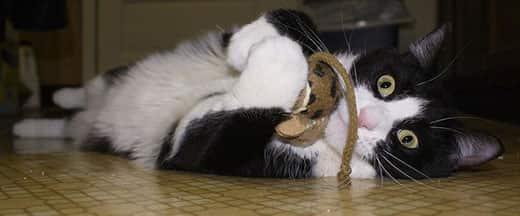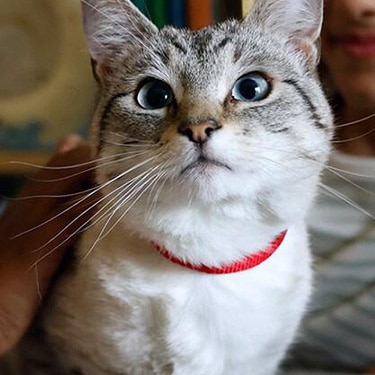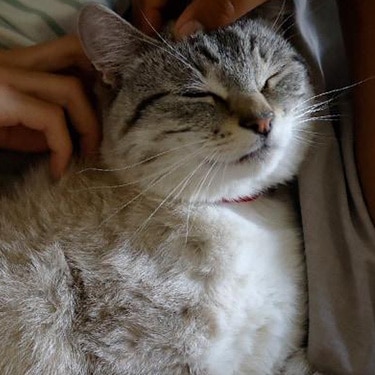
-
Find the right food for your petTake this quiz to see which food may be the best for your furry friend.Find the right food for your petTake this quiz to see which food may be the best for your furry friend.Featured products
 Perfect Digestion Large Breed Puppy Food
Perfect Digestion Large Breed Puppy FoodPrecisely balanced nutrition with Hill's ActivBiome+ prebiotic blend actively contributes to supporting digestive health and overall well-being to help your pet feel their best
Shop Now Perfect Digestion Small & Mini Adult Dog Food
Perfect Digestion Small & Mini Adult Dog FoodHill's Science Plan Perfect Digestion Small & Mini Breed Adult Dog Food with Chicken & Brown Rice supports ultimate digestive well-being & a healthy microbiome.
Shop Now Small & Mini Mature Adult 7+ Dog Food
Small & Mini Mature Adult 7+ Dog FoodHill's Science Plan Small & Mini Breed Mature Adult Dog Food with Chicken is a complete pet food, specially formulated with ActivBiome+ Multi-Benefit Technology.
Tailored nutrition to support graceful ageing in small dogs. Specially made with a synergistic blend of nutrients for energy & vigor.Shop NowFeatured products Kitten Food
Kitten FoodTender chicken chunks in gravy for kittens, with omega-3s for healthy eye & brain development and high-quality protein to support muscle growth. With balanced minerals to promote strong bones & teeth.
Shop Now Hairball & Perfect Coat Adult Cat Food
Hairball & Perfect Coat Adult Cat FoodHill's Science Plan HAIRBALL & PERFECT COAT Adult cat food with Chicken is specially formulated to effectively help avoid hairball formation in adult cats while promoting a beautiful coat. Thanks to its mix of essential Omega-6 fatty acids, this food benefits the cat's skin and fur keeping them healthy and shiny. Our Advanced Fibre Technology helps reduce hairballs by naturally promoting their passage through the gut. This food is formulated with high-quality protein for a perfectly balanced, great-tasting recipe.
Shop Now Hypoallergenic Dry Cat Food
Hypoallergenic Dry Cat FoodHILL'S SCIENCE PLAN Hypoallergenic Adult cat food with egg & insect protein is a complete pet food for adult cat 1–6 years old. It's formulated for cats with delicate skin and stomach, with limited high quality novel protein sources & no grain.
Shop Now -
Dog
- Dog Tips & Articles
-
Health Category
- Weight
- Food & Environmental Sensitivities
- Urinary
- Digestive
- Joint
- Kidney
-
Life Stage
- Puppy Nutrition
- Adult Nutrition
- Senior Nutrition
Cat- Cat Tips & Articles
-
Health Category
- Weight
- Skin & Food Sensitivities
- Urinary
- Digestive
- Kidney
-
Life Stage
- Kitten Nutrition
- Adult Nutrition
Featured articles Pet Food Storage Tips
Pet Food Storage TipsWhere you store your cat and dog food can make a big difference in the quality and freshness once it is opened. Here are some common questions and recommendations for optimal storage for all of Hill’s dry and canned cat and dog food.
Read More Understanding Your Pet's Microbiome
Understanding Your Pet's MicrobiomeLearn what a pet's microbiome is, how it contributes to your pet's gut & overall health, and why nutrition is important in maintaining healthy microbiomes.
Read More The Right Diet For Your Pet
The Right Diet For Your PetLearn what to look for in healthy pet food & nutrition, including ingredients, quality of the manufacturer, your pet's age, and any special needs they have
Read More -


In the middle of a play session, without warning and seemingly out of nowhere, your cat clamps down on you for a quick, painful nibble. First thought: "Ow! Aren't we friends?" Second thought: "Why do cats bite when I play with them?"
One of the most common reasons why cats like to sink their tiny — but mighty — teeth into our skin is play aggression. But the good news is that with this information, you'll not only understand why cats nip, but you'll also have tools you need to help redirect or, ideally, prevent this unwelcome behaviour.
Why Do Cats Bite While Playing?
Essentially, if your cat nips at you during playtime, it's their way of saying, "This is fun, but let's take it to the next level." Engaging in play with your furbaby is a terrific bonding experience, but if your cat's playfulness turns aggressive, they'll bite you or, perhaps, use your entire arm as a chew toy.
Cats play in a way that "involves typical predatory and play behaviours," notes the ASPCA: stalking, attacking, clawing and biting their perceived opponent. It's not unusual for them to act this way with their pet parents, and once they're in the throes of roughhousing, they may have difficulty pulling back.

Sometimes cat parents don't realize they're actually encouraging the biting. As International Cat Care points out, when people play a little too "rough and tumble" with young cats, "they often reinforce the highly excitable behaviour, and encourage kittens to grow up biting and scratching in the name of play with an intensity that can cause injury." But keep in mind, roughhousing isn't a good idea with cats of any age.


Tasty Tips
How to Prevent Cat Nips
The best way to stop aggressive biting is to shut it down before it becomes a habit. It's not always easy, but your skin will thank you later.
For starters, understanding your cat's body language can go a long way toward curbing play biting. It's easy to get distracted while playing together, but you'll want to pay careful attention to your cat's stance, ear and tail positions, and eyes.
Remember that the reason cats play bite is that they are acting like you're prey. And why do cats nip? They're giving you a warning. If their eyes are dilated, back away slowly. And if they're crouched and shaking their rear end, you're about to be ambushed!
 You can still goof around and be very active with your cat pal, but there are ways to do so without ending up on the receiving end of their fangs. For example, don't use your hand or arm as a toy; instead, employ a real toy, such as a catnip mouse or bird on a wand, as the go-between. If you still find yourself under attack, redirect your cat's attention by tossing a beloved toy in the opposite direction so they'll dart after it.
You can still goof around and be very active with your cat pal, but there are ways to do so without ending up on the receiving end of their fangs. For example, don't use your hand or arm as a toy; instead, employ a real toy, such as a catnip mouse or bird on a wand, as the go-between. If you still find yourself under attack, redirect your cat's attention by tossing a beloved toy in the opposite direction so they'll dart after it.
If your cat does bite you while playing, don't react in a way that'll break the bond of trust between you two. "Never physically punish or even touch a cat during these times," emphasizes the Cornell Feline Health Center, "as this may cause a cat to become fearful of people or may be interpreted as play, which may inadvertently reward the aggressive behaviour." So if redirecting doesn't work, simply walk away and ignore your kitty — they'll eventually get the hint that this isn't appropriate behaviour.
Shifting From Cat Bites to Affectionate Acts
You may be taken aback by unexpected behaviour like play biting, but don't consider it a sign that your kitty doesn't love you. Cats have unique ways of showing affection, after all, from head-butting to, yes, "love nips." When your furry friend gently nibbles on your finger, that's just fine. When they start all-out chomping on you during playtime, it's probably time to curb this behaviour.
Instead of allowing nipping at all, encourage more gentle sentiments like kneading and snuggling. If you show a lack of interest in playing rough, your cat might lose interest in it, too.
It's not always easy to change your cat's behaviour, but redirecting and preventing your furry friend's biting urge will help take the sting out of playtime.


Christine O'Brien is a writer, mom, and long-time cat parent whose two Russian Blues rule the house. Her work also appears in Care.com, What to Expect, and Fit Pregnancy, where she writes about pets, pregnancy, and family life. Find and follow her on Instagram and Twitter @brovelliobrien.
Related products

Hill's Science Plan HAIRBALL & PERFECT COAT Adult cat food with Chicken is specially formulated to effectively help avoid hairball formation in adult cats while promoting a beautiful coat. Thanks to its mix of essential Omega-6 fatty acids, this food benefits the cat's skin and fur keeping them healthy and shiny. Our Advanced Fibre Technology helps reduce hairballs by naturally promoting their passage through the gut. This food is formulated with high-quality protein for a perfectly balanced, great-tasting recipe.

HILL'S SCIENCE PLAN Hypoallergenic Adult cat food with egg & insect protein is a complete pet food for adult cat 1–6 years old. It's formulated for cats with delicate skin and stomach, with limited high quality novel protein sources & no grain.

Hill's Science Plan Adult Cat Food with Chicken is a complete pet food, specially formulated with ActivBiome+ Multi-Benefit Technology.
This food is specially formulated to fuel the energy needs of cats during the prime of their life.

Tender chicken chunks in gravy for kittens, with omega-3s for healthy eye & brain development and high-quality protein to support muscle growth. With balanced minerals to promote strong bones & teeth.
Related articles

Discover what you can do to spot and support a sensitive cat stomach. See what routines and food you can implement to help your cat be happy and healthy.

Find out about how you can support your cat's digestion to boost overall health. Diet is key to a long and happy life for your cat, so discover what you can do.

When learning how to train your cat, you'll start with very basic first steps that both reward good behavior and discourage the bad.

Discover which cat toys games your feline friend might like, and how they are great sources of exercise. Explore our library of articles to learn more.

Put your cat on a diet without them knowing
Our low calorie formula helps you control your cat's weight. It's packed with high-quality protein for building lean muscles, and made with purposeful ingredients for a flavorful, nutritious meal. Clinically proven antioxidants, Vitamin C+E, help promote a healthy immune system.
Put your cat on a diet without them knowing
Our low calorie formula helps you control your cat's weight. It's packed with high-quality protein for building lean muscles, and made with purposeful ingredients for a flavorful, nutritious meal. Clinically proven antioxidants, Vitamin C+E, help promote a healthy immune system.

